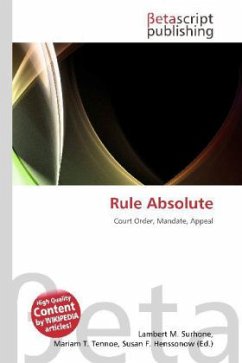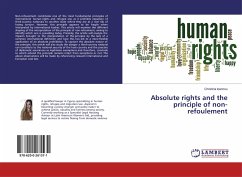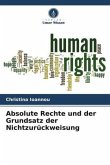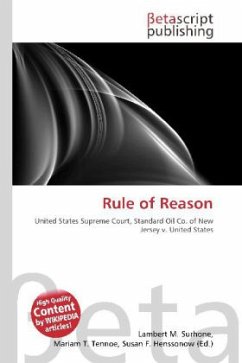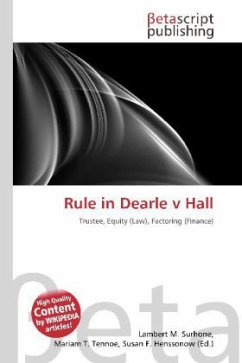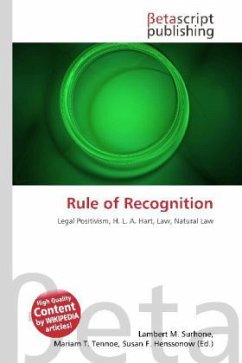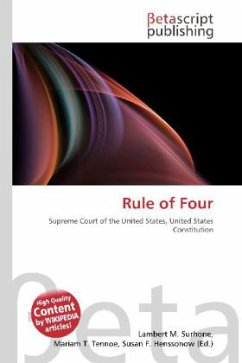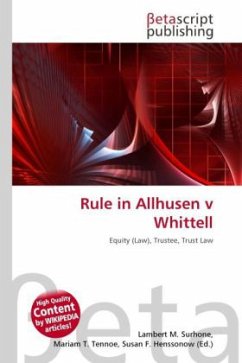Please note that the content of this book primarily consists of articles available from Wikipedia or other free sources online. Historically English Law struggled to find proper processes for dealing with appeals against jury verdicts. In the 18th century a practice grew up of applying to the trial judge for a new trial (not the same thing as an appeal) on the basis that the judge had misdirected the jury, or, later, that the verdict was ''against evidence'' i.e. that the jury had come to a perverse verdict. A judge who thought there might be something in this would make a provisional order for a new trial, known as a ''rule nisi'' (''nisi'' is Latin for unless) and in this context the order meant that there would be a new trial unless a sort of appeal court, usually consisting of all the judges of that division of the court - including the judge who had made the original ruling, ordered otherwise after further argument.
Bitte wählen Sie Ihr Anliegen aus.
Rechnungen
Retourenschein anfordern
Bestellstatus
Storno

